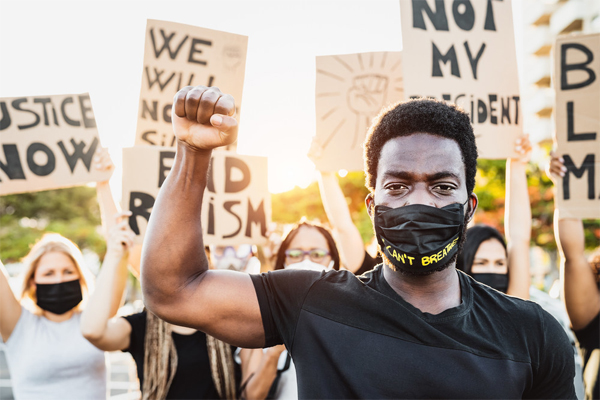Diversity, equity and Inclusion (DE&I) investment has started to pay off as staff help to create more ’empathetic’ and ‘respectful’ workplace cultures, according to data released by Emtrain.
In a year filled with pandemic chaos, social justice reckonings, and divisive elections, corporate cultures were stress-tested. Employees suffered hardships, but some companies also took steps to build more respectful workplace culture in several key areas. According to the findings of Emtrain’s Workplace Culture Insights Report on Respect, 2020 saw an increase in empathy and communication skills.
The percentage of employees who said, “people in my workplace show empathy” jumped 15.9% from 2019. The shared experience of the new work from home dynamic may have fostered a, “we’re all in this together” mindset that encouraged greater empathy among coworkers. The greater attention paid to the ills of systematic racism may have led to an attempt at greater understanding and empathy in the workplace, noted the report.
BLACK LIVES MATTER IMPACT
According to Emtrain, which delivers workplace culture analytics through online training to prevent bias, discrimination and ethical lapses, DE&I investments are starting to make an impact. In 2020/21, 7% more employees said they have a good understanding of their organisations’ DE&I goals than they did in 2019. In fact, 2020 produced more workers “willing to step in”.
One of the many positives of the Black Lives Matter movement and overall awareness of deeply embedded racism was a shift in people’s awareness and willingness to get involved when they see inappropriate behaviours, including in the workplace. In 2020/21, Emtrain saw an 18.5% increase in the number of people who said they would take proactive measures when they witnessed toxic situations.

ROOM FOR IMPROVEMENT
Although the findings showed some encouraging signs in how employees feel about their workplace experience, there is still room for improvement, noted the report. The research analysing attitudes about workplace culture from 370,000 employees at 400+ companies, revealed that:
- Organisational culture is under stress. 11% more employees in 2020/21 than in 2019 now cite “Weak Corporate Culture” as the greatest source of workplace conflict; indicating that many felt their culture was not resilient to help people adapt to the social change experienced in the last 12 months.
- More employees than before say they have had to minimise their personal identity on the job. The shift here was slight but in a concerning direction: a 5% increase in the number of employees who have had to minimise their personal identity to fit into a job.
- Power Dynamics are still at work, even while people are working from home.
Emtrain found that employees were less likely – an 11% drop – to say “no” to unreasonable requests by their managers in 2020/21 than in 2019. This result is not surprising in a year where people feared getting put on the list for layoffs, among other concerns.
SILVER LINING
Commenting on the findings, Emtrain Founder and CEO Janine Yancey, stated: “Covid-19, the racial justice movement and political divisions brought unprecedented change to the workplace. But our data shows a silver lining. The shared experience of adapting to the pandemic may have fostered a ‘we’re all in this together’ mindset that encouraged greater empathy among coworkers. And the greater attention paid to the ills of systematic racism may have led to an attempt at greater understanding and empathy in the workplace.”

“Obviously, the work is far from over and there are a few discouraging places where we may have slid backwards,” added Yancy. “But overall employees do look to be helping create a more respectful workplace culture.”
Click here for more information about the report.







































